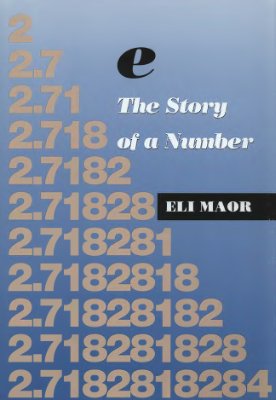Princeton University Press, 1994. - 223 pages.
The story of pi has been told many times, both in scholarly works and in popular books. But its close relative, the number e, has fared less well. Despite the central role it plays in mathematics, its history has never before been written for a general audience. The present work fills this gap. Geared to the reader with only a modest background in mathematics, the book describes the story of e from a human as well as a mathematical perspective. In a sense, it is the story of an entire period in the history of mathematics, from the early 17th to the late 19th century, with the invention of calculus at its centre. Many of the players who took part in this story are brought to life. Among them are John Napier, the eccentric religious activist who invented logarithms and - unknowingly - came within a hair's breadth of discovering e; William Oughtred, the inventor of the slide rule; Newton and his bitter priority dispute with Leibniz over the invention of calculus, a conflict that impeded British mathematics for more than a century; and Jacob Beoulli.
The story of pi has been told many times, both in scholarly works and in popular books. But its close relative, the number e, has fared less well. Despite the central role it plays in mathematics, its history has never before been written for a general audience. The present work fills this gap. Geared to the reader with only a modest background in mathematics, the book describes the story of e from a human as well as a mathematical perspective. In a sense, it is the story of an entire period in the history of mathematics, from the early 17th to the late 19th century, with the invention of calculus at its centre. Many of the players who took part in this story are brought to life. Among them are John Napier, the eccentric religious activist who invented logarithms and - unknowingly - came within a hair's breadth of discovering e; William Oughtred, the inventor of the slide rule; Newton and his bitter priority dispute with Leibniz over the invention of calculus, a conflict that impeded British mathematics for more than a century; and Jacob Beoulli.

